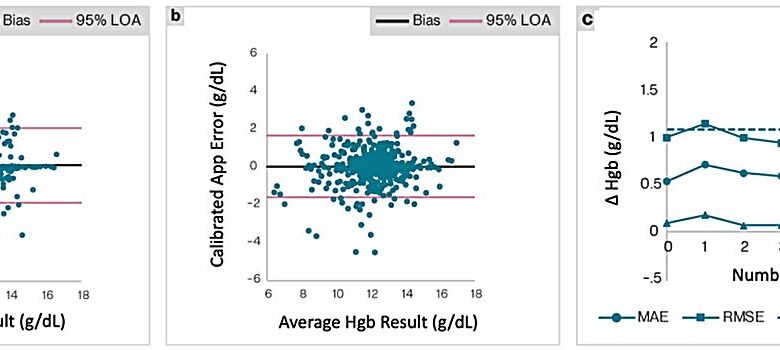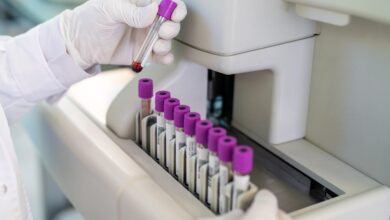AI-powered app enables anemia screening using fingernail selfies

Anemia is a widespread health issue affecting more than 2 billion people globally, with an estimated 83 million Americans at high risk. However, a groundbreaking new app has been developed to provide accessible and reliable screening for anemia directly to consumers.
A recent study, co-authored by Dr. L. Andrew Lyon, a professor and founding dean of the Fowler School of Engineering at Chapman University, introduces a significant advancement in noninvasive health technology. The study, published in the Proceedings of the National Academy of Sciences, showcases a smartphone app that utilizes artificial intelligence and a photo of a user’s fingernail to detect anemia.
The study reveals that this AI-augmented app delivers hemoglobin estimates that are comparable to traditional lab testing. With over 1.4 million tests conducted by more than 200,000 users, this app offers a scalable and cost-effective solution that expands access to anemia screening, especially in underserved and remote communities.
By providing increased accessibility, this app empowers users to monitor their health in real-time and enables early intervention. This allows individuals to make informed decisions without having to wait for lab results. While the app is not meant for self-diagnosis, it assists users in understanding when to seek medical advice.
The app is particularly beneficial for individuals with chronic anemia, such as those with kidney disease or cancer, who require frequent monitoring. Personalized use of the app among these patients improved accuracy by nearly 50%, facilitating safer and more convenient at-home management. Additionally, geolocation data enabled the development of the first county-level anemia prevalence map in the U.S.
Specifically, app personalization for chronic anemia patients led to improved accuracy, with hemoglobin estimates showing a mean absolute error of ±0.72 g/dL, which improved to ±0.50 g/dL in users with Hgb levels above 10 g/dL.
Dr. Lyon emphasized the significance of this research, stating that it represents a significant advancement in healthcare accessibility. He highlighted the importance of long-term collaboration and innovation in empowering patients through technological advancements.
For more information, the study titled “Real-world implementation of a noninvasive, AI-augmented, anemia-screening smartphone app and personalization for hemoglobin level self-monitoring” can be accessed in the Proceedings of the National Academy of Sciences (2025) with DOI: 10.1073/pnas.2424677122.
This transformative app, developed by Chapman University, signifies a major leap forward in health technology, providing a simple and effective solution for anemia screening and management.





